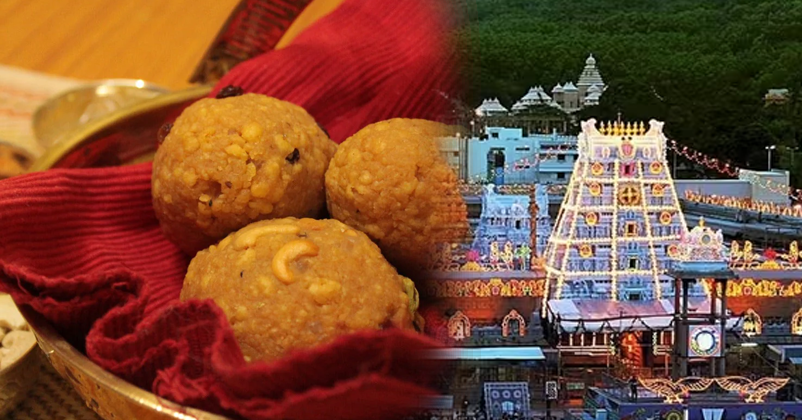The Fight for Hindu Rights: Tirupati Prasadam Controversy
21 Sep 2024 12:06:34

It is essential to acknowledge the historical context, which indicates that religious freedoms in India are safeguarded under Articles 25–28 of the Constitution. These provisions affirm that any religious institution or denomination has the autonomy to manage its own affairs in matters of faith. The state is prohibited from intervening unless such practices threaten public order, health, or morality. Courts have the authority to determine whether a particular ritual or ceremony is an essential part of a religion’s practice.
However, churches and mosques, often regarded as sensitive institutions, are closely tied to minority communities, who are quick to mobilize in protest. Political parties tend to prioritize these minority groups due to their significance as vote banks, making it politically convenient to appease them under the guise of safeguarding minority rights. This situation raises questions about the true definitions of "majority" and "minority" within the Indian democratic context. Despite Hindus forming the majority population-wise, they often find themselves marginalized in terms of institutional empowerment.
In Islam, waqf boards manage mosques, dargahs, and graveyards, with the Central Waqf Council overseeing 30 waqf boards across India. Sikh gurdwaras are managed by the Shiromani Gurudwara Prabandhan Committee (SGPC) or regional chapters. Although religious organizations across faiths, including temples, are subject to government oversight, decision-making concerning resources and finances remains primarily within the control of religious leaders. Nonetheless, Hindu temples are frequently denied such autonomy. Over 400,000 Hindu religious sites are under government control, driven by political interests, treating temples as electoral assets.
Historically, there have been calls to address these injustices. On March 11, spiritual leader Jaggi Vasudev, also known as "Sadhguru," launched a "missed call campaign," advocating for the release of Tamil Nadu temples from government control. He emphasized that, in modern times, governments have relinquished control over industries, trade, and public infrastructure yet continue to manage sacred temples. He questioned the rationale behind such governance and urged prominent figures like DMK Chief MK Stalin, actor Rajinikanth, and Tamil Nadu Chief Minister Edappadi Palaniswami to intervene.
Incidents of attacks on Hindu traditions have occurred over time, with the most recent example being an alleged adulteration of temple offerings. Andhra Pradesh Chief Minister Chandrababu Naidu accused the previous administration of substituting ghee with fish oil and animal fat in the *prasadam* at Tirupati Temple. Following the defeat of Jagan Mohan Reddy's party in the 2024 state assembly elections, Naidu formed a government under the National Democratic Alliance (NDA). On July 9, ghee samples were sent to the NDDB CALF laboratory in Gujarat, with the report confirming on July 16 that one supplier had adulterated the ghee used in the temple’s offerings. The lab determined that the *laddu* offerings contained fish oil and animal fat.
After a meeting of the temple trust on July 22, additional samples were taken and sent for analysis. On September 18, the results were made public, further implicating the previous Jagan government in mismanaging religious practices. Naidu’s government accused the former administration of betraying public trust and desecrating the sanctity of the temple. The report confirmed that the ghee used in the temple *laddus* was tainted with fish oil, animal tallow, and lard, among other ingredients.
In response to these allegations, Andhra Pradesh's Deputy Chief Minister Pawan Kalyan proposed the formation of a national "Sanatana Dharma Rakshana Board" to protect Hindu interests. The broader concern highlighted by this situation is the perceived injustice faced by Hindus in managing their religious institutions, despite being the majority. There is a growing sentiment that Hinduism, rooted in faith and belief, should not be subject to coercion or government interference and that Hindus should have the autonomy to manage their own places of worship.
Yash Tanwar
Masters in Mass Communication